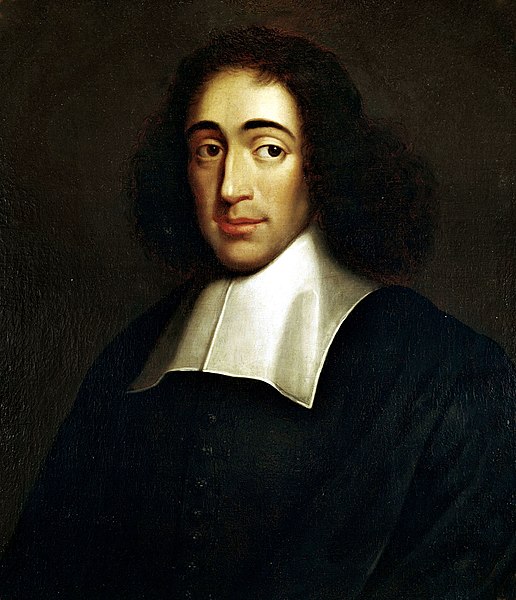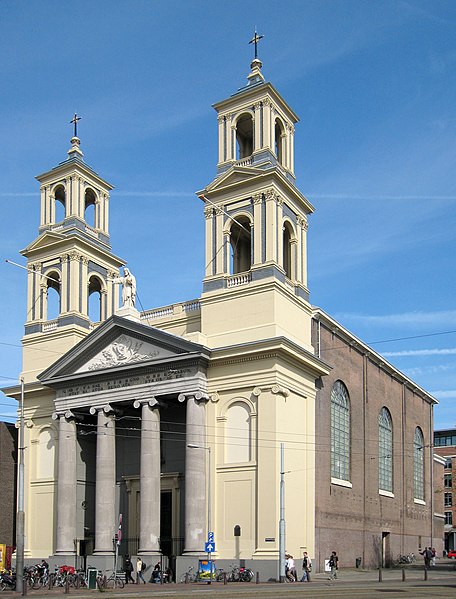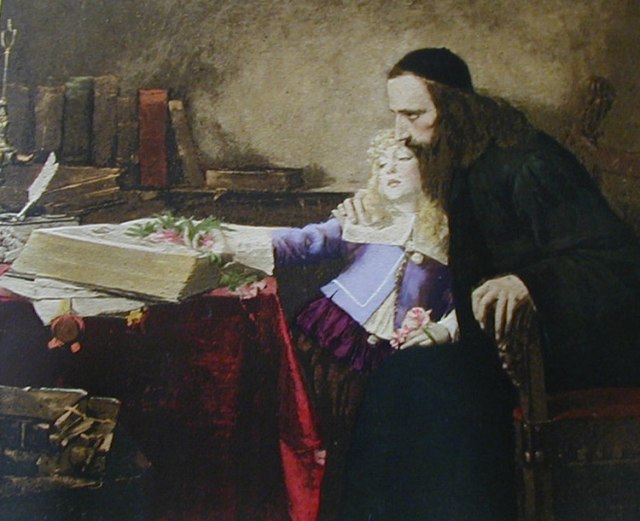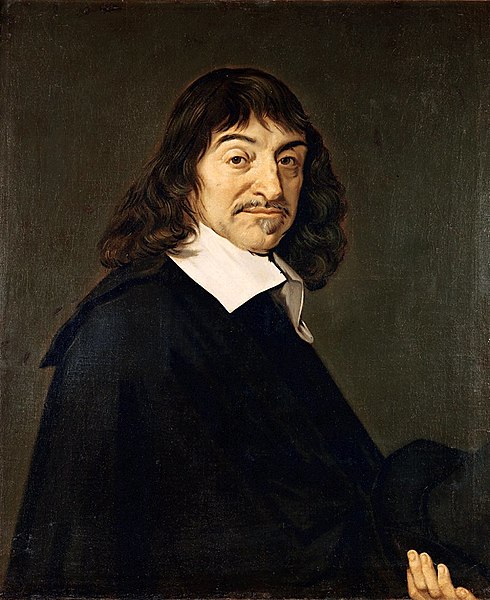Baruch (de) Spinoza, also known under his Latinized pen name Benedictus de Spinoza, was a philosopher of Portuguese-Jewish origin. As a forerunner of the Age of Reason, Spinoza significantly influenced modern biblical criticism, 17th-century rationalism, and contemporary conceptions of the self and the universe, establishing himself as one of the most important and radical philosophers of the early modern period. He was influenced by Stoicism, Maimonides, Niccolò Machiavelli, René Descartes, Thomas Hobbes, and a variety of heterodox Christian thinkers of his day.
Baruch Spinoza
The Moses and Aaron Church now stands at the site of Spinoza's childhood home.
Samuel Hirszenberg's imagined scene of Uriel da Costa instructing Spinoza (1901)
Excommunicated Spinoza by Samuel Hirszenberg (1907), the second of his two modern paintings imagining scenes of Spinoza's life.
The Age of Enlightenment was the intellectual and philosophical movement that occurred in Europe in the 17th and the 18th centuries. The Enlightenment featured a range of social ideas centered on the value of knowledge learned by way of rationalism and of empiricism and political ideals such as natural law, liberty, and progress, toleration and fraternity, constitutional government and the formal separation of church and state.
Reading of Voltaire's tragedy, The Orphan of China, in the salon of Marie Thérèse Rodet Geoffrin in 1755, by Anicet Charles Gabriel Lemonnier, c. 1812
René Descartes, widely considered a seminal figure in the emergence of modern philosophy and science
German philosopher Immanuel Kant, one of the most influential figures of Enlightenment and modern philosophy
Cesare Beccaria, father of classical criminal theory








